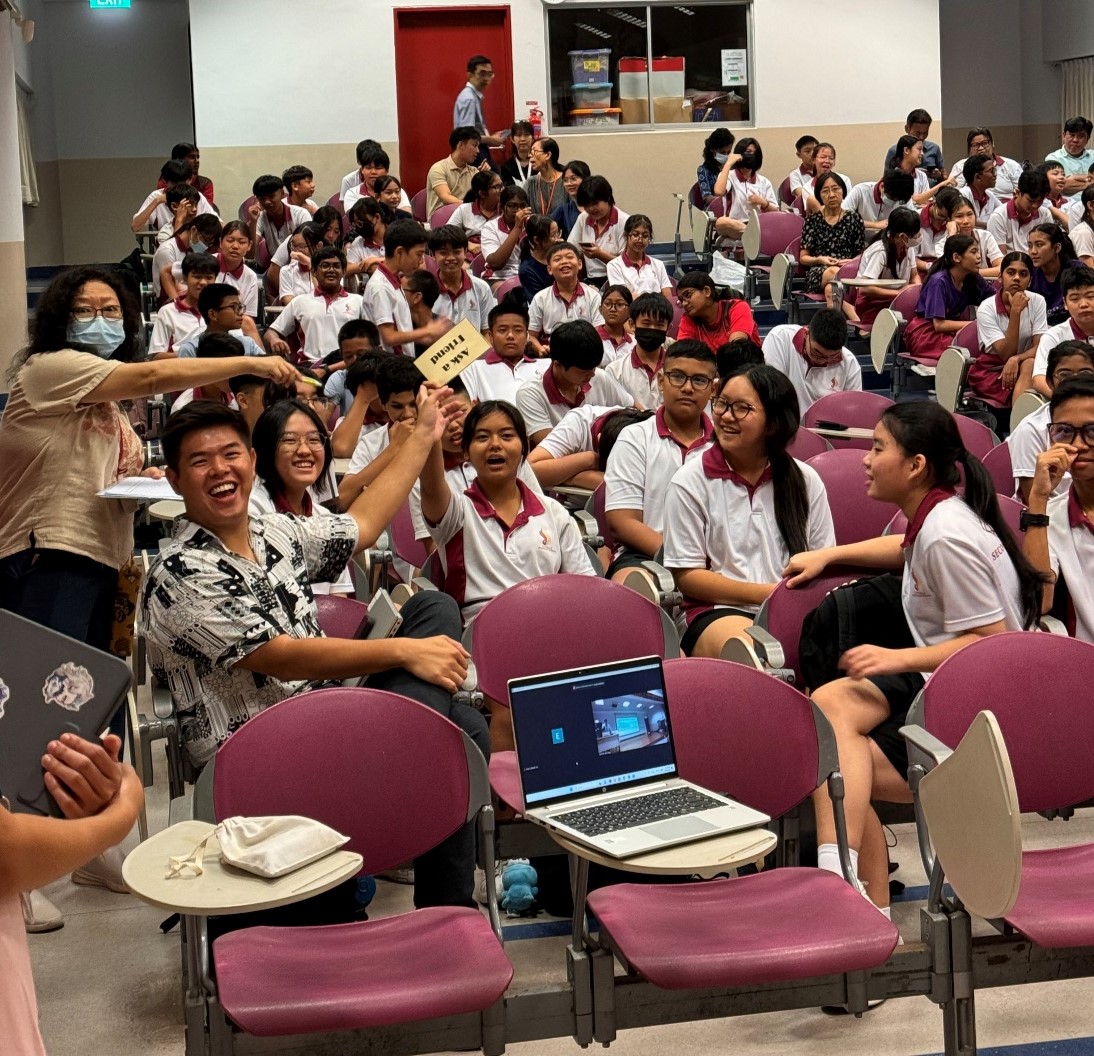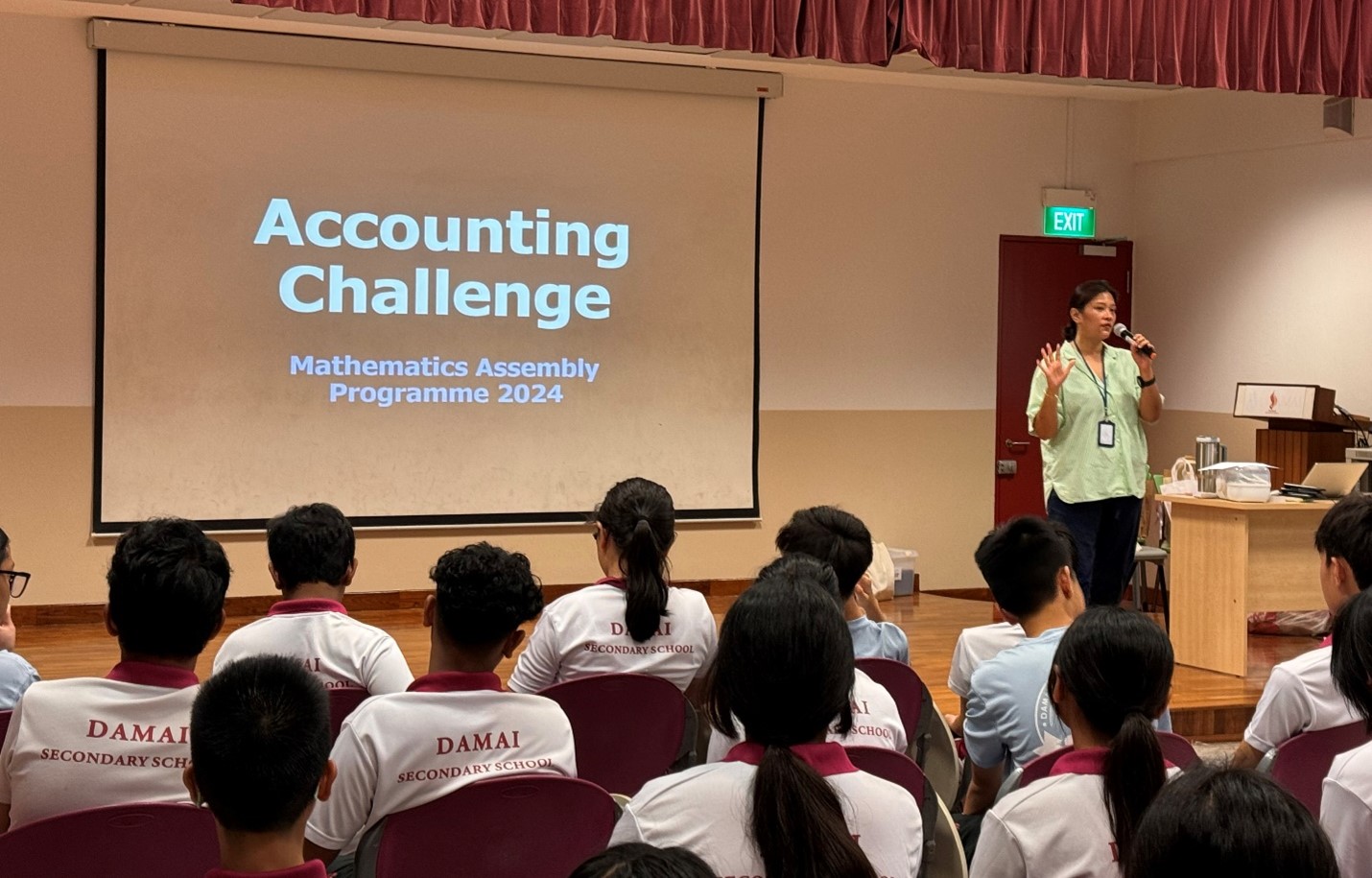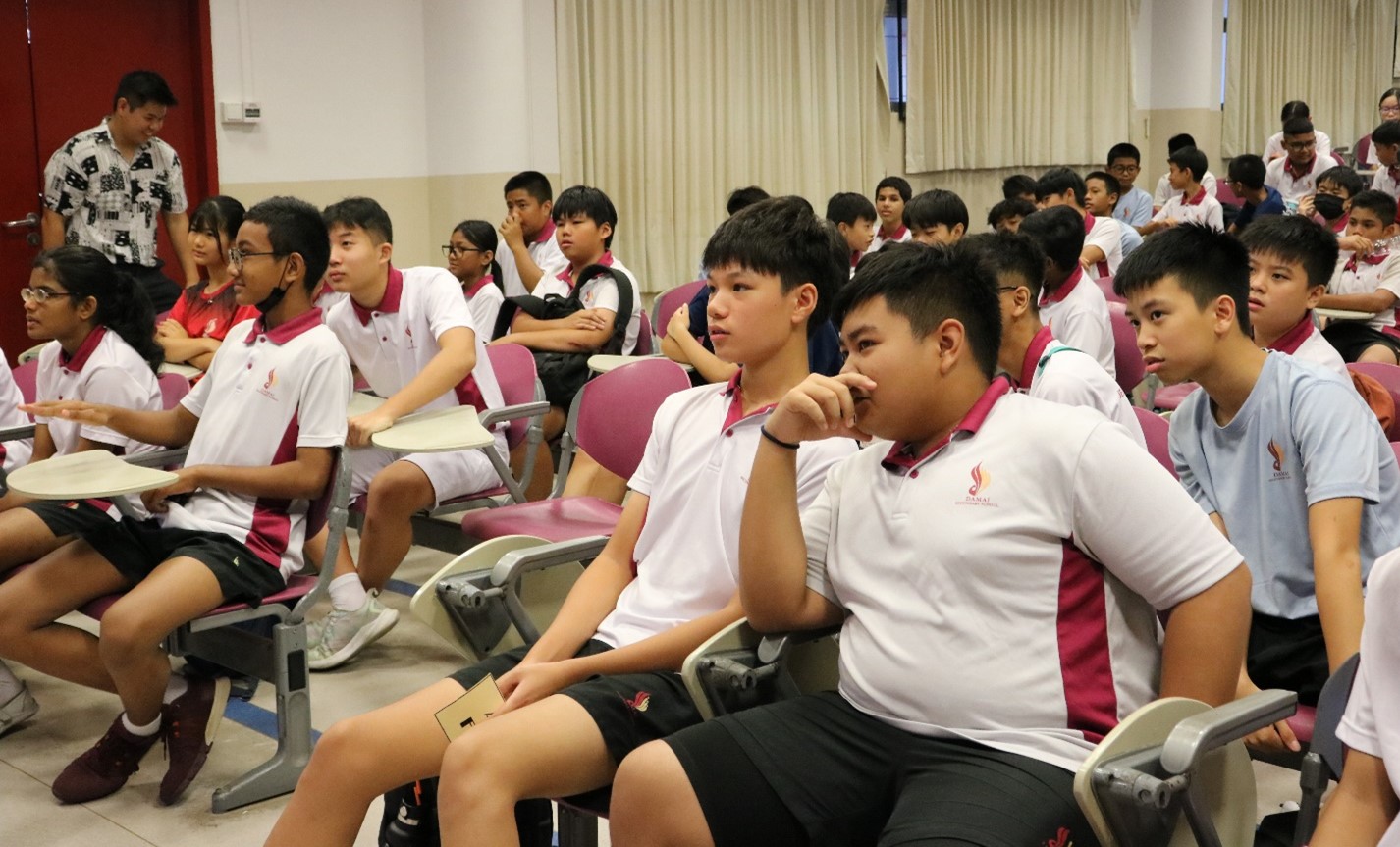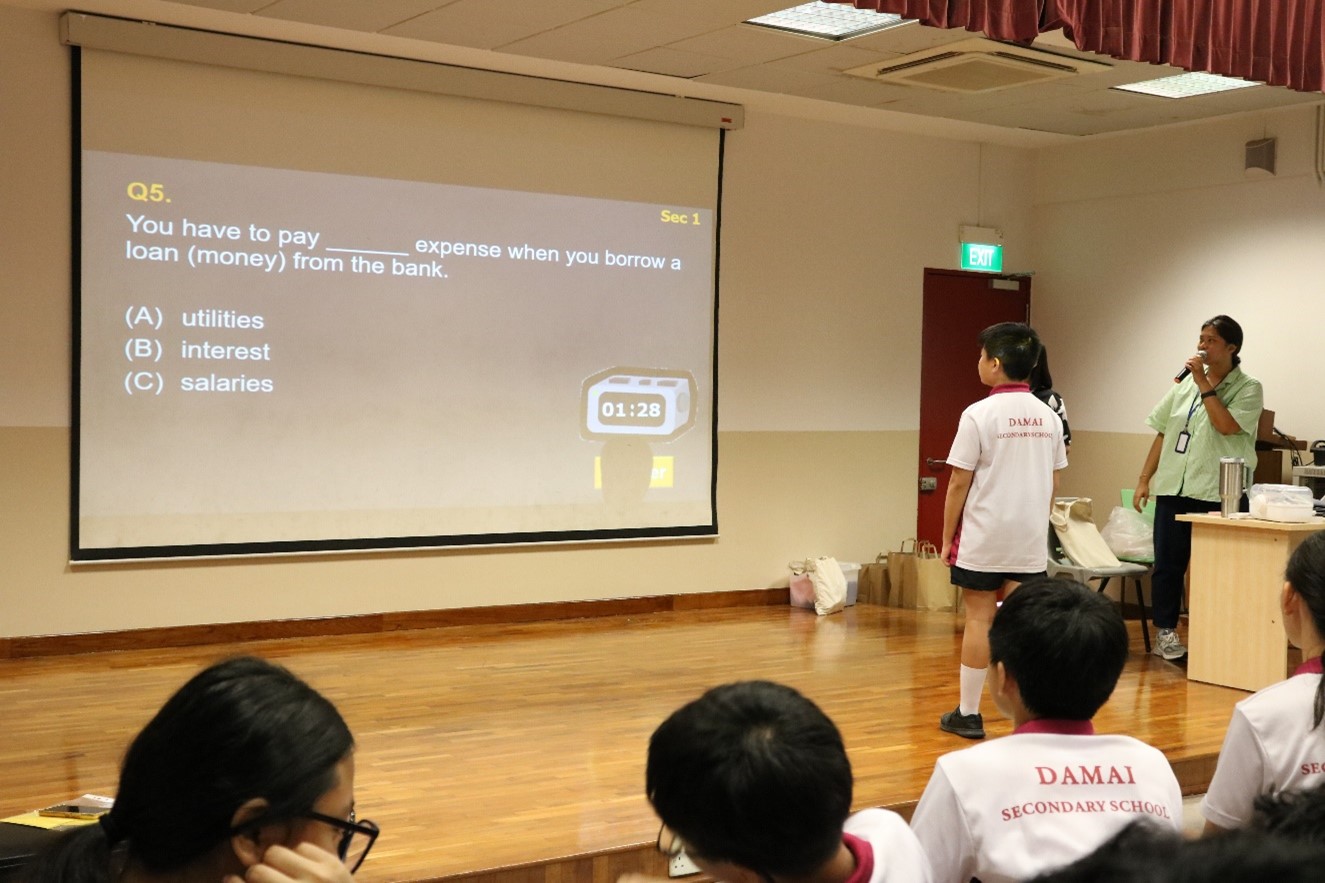Mathematics
Department Focus
“Every child is a self-directed learner and creative problem solver.”
– Vision of Mathematics department.
As a department, we work towards enabling our students to apply mathematical concepts and skills in their daily lives. As such, we aim to develop our students to be effective and confident problem solvers and equip them with the ability to think critically.
They will be able to communicate their ideas and thoughts using appropriate mathematical concepts. In addition, they will possess mathematical process skills.
Subjects under Mathematics department: Mathematics, Principles of Accounts (POA), Computer Applications (CPA) and Retail Operations (RO).
Curriculum
Mathematics
The department believes strongly in building a strong foundation in the subject as well as providing an enriching and engaging learning experience for our students in the classrooms. This is done through the use of various teaching and learning approaches including collaborative learning, self-directed learning and ICT-infused teaching and learning.
With every student owning a personal learning device now, the teachers in the department design ICT-enriched learning experiences for all the students so that they can use these digital resources to learn according to their needs and interests, and collaborate with one another, anytime and anywhere.
The department’s assessment approaches include Assessment for Learning (AfL) and Assessment of Learning (AoL). These include pen and paper assessments, chapter graded assignments, performance tasks, on-line assessments, reflection journals and projects.
Principles of Accounts (POA)
The subject POA is offered as an elective subject for the upper secondary Express and Normal (Academic) courses. Students offering POA are introduced to the principles and concepts of accounting and their applications in a variety of business situations. In the process, students will develop an understanding of the importance of professional ethics.
The POA unit’s teaching and learning approach is to help students construct their POA knowledge by building upon their pre-existing knowledge and experiences. This is done through the use of examples and experiences that students can easily relate to, and through the use of newspaper articles when real-life examples are available. Whenever possible, connections to learning from previous topics are made to help students see the links between the different topics in the syllabus.
Computer Applications (CPA)
The CPA lower secondary syllabus focuses on equipping students with fundamental ICT skills that will support the learning of other Normal (Technical) subjects and are useful in their personal lives. At the upper secondary levels, the syllabus focuses on higher-order thinking skills. Students taking CPA will learn problem solving skills and basic programming concepts and skills. Basic programming concepts and skills will be learnt through simple animation and game design, and eventually, applied to solve problems in everyday contexts. This serves to better prepare students for further studies in programming and media-related courses as well as for the work place and future learning. There are six compulsory modules in the subject. These modules are: (1) Computer Fundamentals, (2) Media Elements, (3) Document Processing, (4) Spreadsheets, (5) Multimedia Communication, and (6) Media Computing.
The CPA unit’s teaching and learning approach serves to promote self-directed learning in our students through the use of instructional videos during lessons. Besides using pen and paper mode of assessment, the teachers use ICT tools to make assessment fun, engaging and meaningful to our students.
Retail Operations (RO)
Over a two-year period, Secondary 3 and 4 students in the Normal (Technical) course will learn how to promote a retail store’s products, manage its inventory and learn more about the basics of livestreaming. During these 2 years, there is hands-on learning where students are exposed to the world of retailing through practical and theory lessons in a simulated retail setting, and learn to promote their products online through a livestreaming session.
Retailing skills such as handling and displaying merchandise, managing inventory levels, performing housekeeping duties and the different aspects of online retailing are taught. Students will get to learn more about website building, promoting products and services through short videos and engaging with customers through their own livestream.
Self-directed learning is another characteristic of the syllabus. Students would need to independently research for their practical assessments and presentations.
In a nutshell, the learning objectives of the subject encapsulate the basic retailing skills needed for students to better appreciate and understand the ever-changing industry.
Signature Programmes
As a department, we have organised various signature programmes to engage our students at the different academic levels. This is to make learning of Mathematics fun and engaging so that students can apply the mathematical concepts and skills learnt during curriculum lessons beyond the classroom, into their everyday lives.
Some examples include the annual Mathematics Assembly Programme. In this programme, we organise various activities to engage the students. The students from different courses come together and work as a team to solve the different quizzes and questions related to Mathematics and Principle of Accounts. As a result, all the students always enjoy themselves and have fun with their classmates during the programme.
In class, we adopt different modes of teaching to suit students of different readiness and interests. For example, we adopt Differentiated Instruction during lesson times so that all the students can benefit from the differentiated scaffolding and support provided to them.

|
|---|
|
Teachers and students having fun at the Mathematics Assembly Programme |

|
|
Teacher briefing the students on the Accounting Challenge during the Mathematics Assembly Programme |

|
|
Students thinking hard during the Mathematics Assembly Programme |

|
|
Student participating actively at the Mathematics Assembly Programme |

